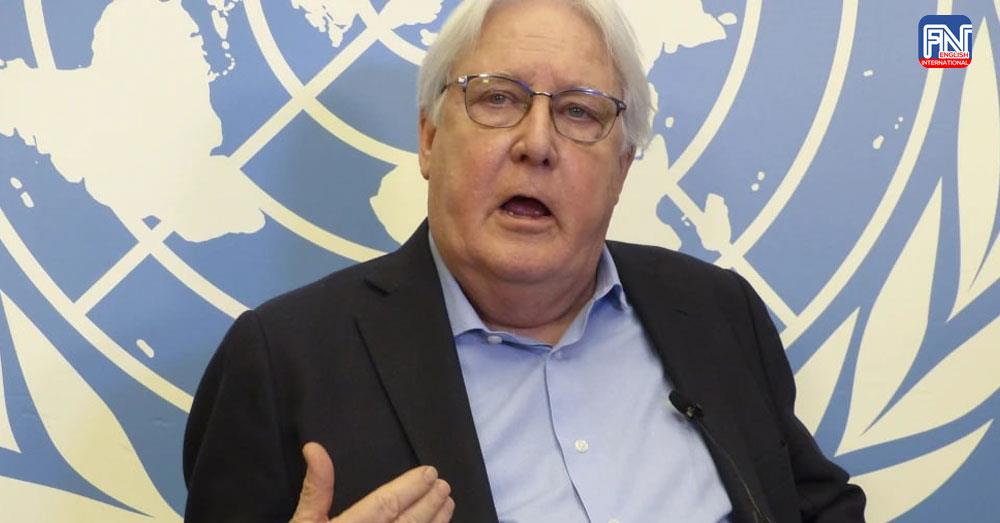UNITED NATIONS, Mar. 26 (AP) — U.N. humanitarian chief Martin Griffiths is stepping down for health reasons after nearly three years of trying to tackle mounting humanitarian crises in Ukraine, Gaza and Africa, the United Nations announced Monday.
U.N. Secretary-General António Guterres praised Griffiths “for his tremendous leadership and service to the United Nations and the humanitarian community in advocating for people affected by crises and mobilizing resources to address their needs,” U.N. deputy spokesman Farhan Haq said.
Griffiths, 72, told The Associated Press earlier this month that he got a severe case of COVID-19 in October and is still suffering from long COVID.
Griffiths took on the job of U.N. undersecretary-general for humanitarian affairs and emergency relief coordinator in July 2021 as crises were escalating around the globe and funds for humanitarian aid were shrinking.
A veteran British diplomat and seasoned negotiator with wide global experience, he served as the U.N. special envoy for Yemen for three years before taking on the U.N.’s top humanitarian post.
Haq said Griffiths will remain in his post until the end of June to allow for a smooth transition.
In 1994, Griffiths served in Geneva as director of the U.N. Department of Humanitarian Affairs, which preceded the establishment of the U.N. Office for the Coordination of Humanitarian Affairs, that he now heads.
From 1999 to 2010, he was the founding director of the Center for Humanitarian Dialogue in Geneva, where according to the U.N. he specialized in developing political dialogue between governments and insurgents in a range of countries across Asia, Africa and Europe.
Griffiths served as the first executive director of the European Institute of Peace from 2014-2018 and he served as special adviser to three U.N. special envoys for Syria and as deputy head of the U.N. mission in Syria from 2012-2014, during the early years of the ongoing conflict there.
Earlier in his career, he was a British diplomat and worked for various international humanitarian organizations, including UNICEF, Save the Children and Action Aid.

Photo from AP